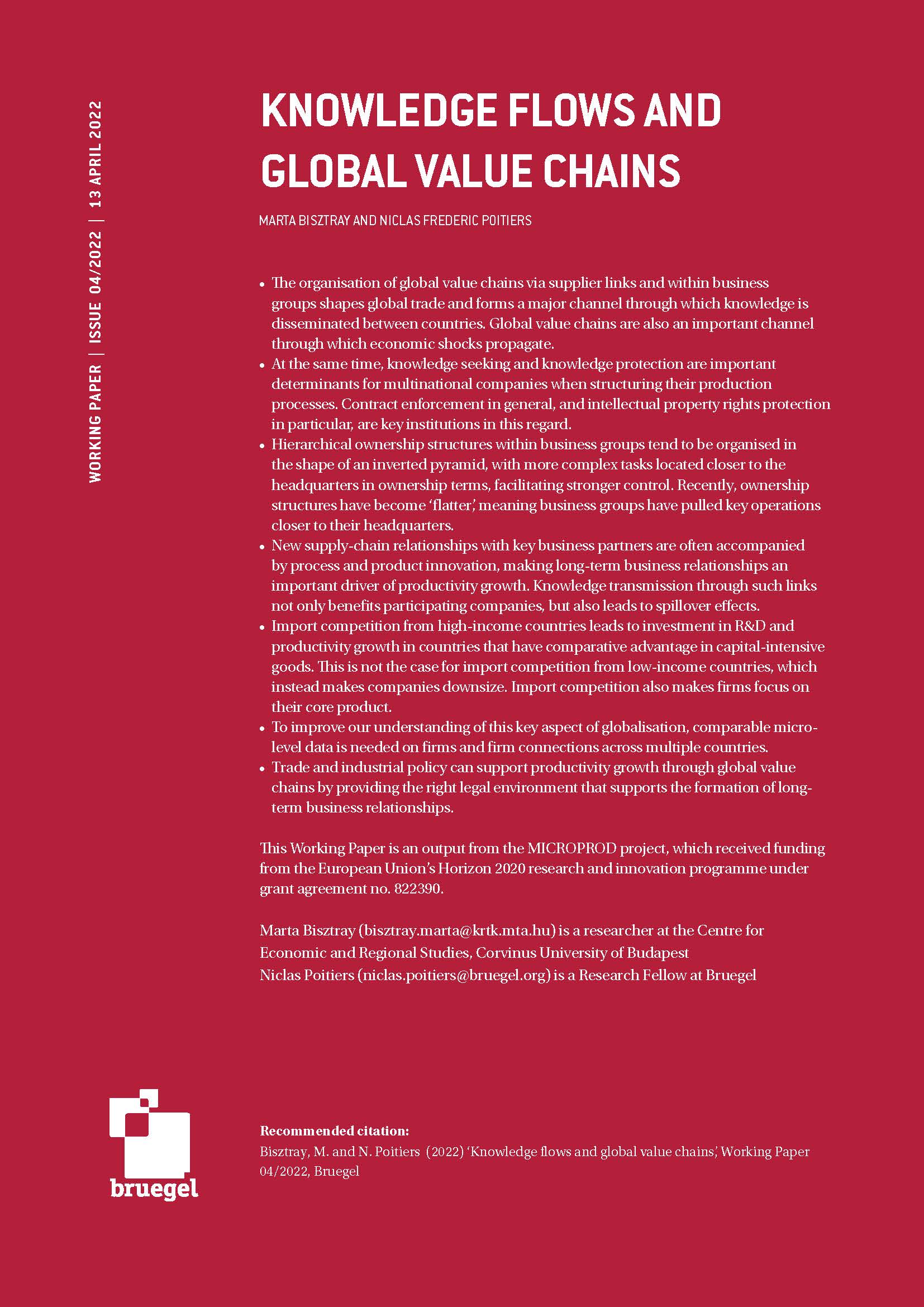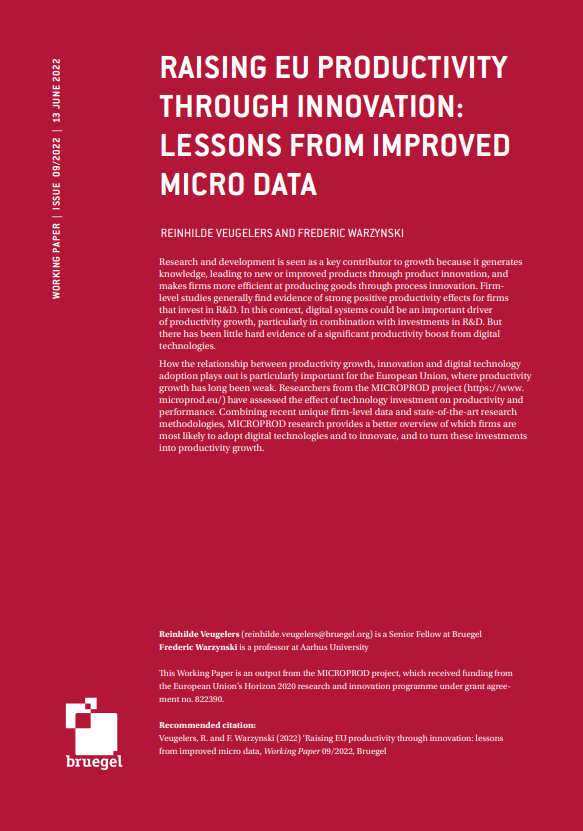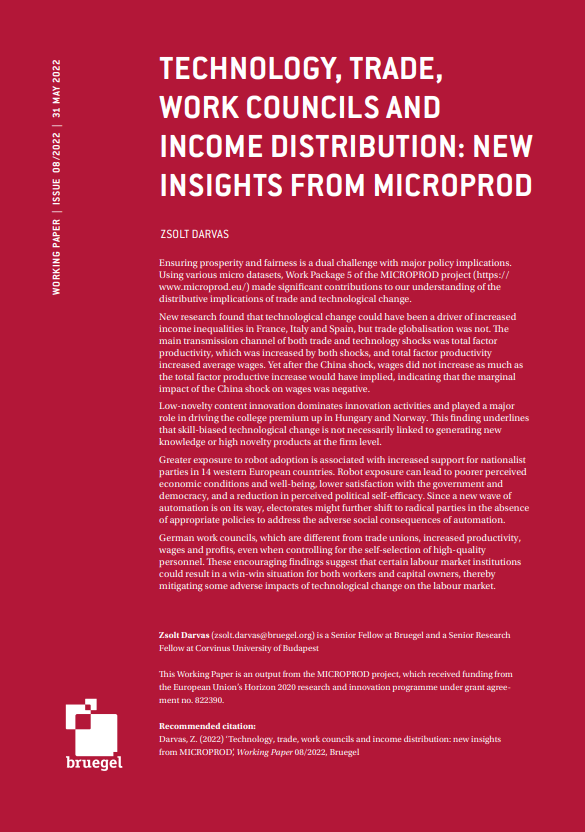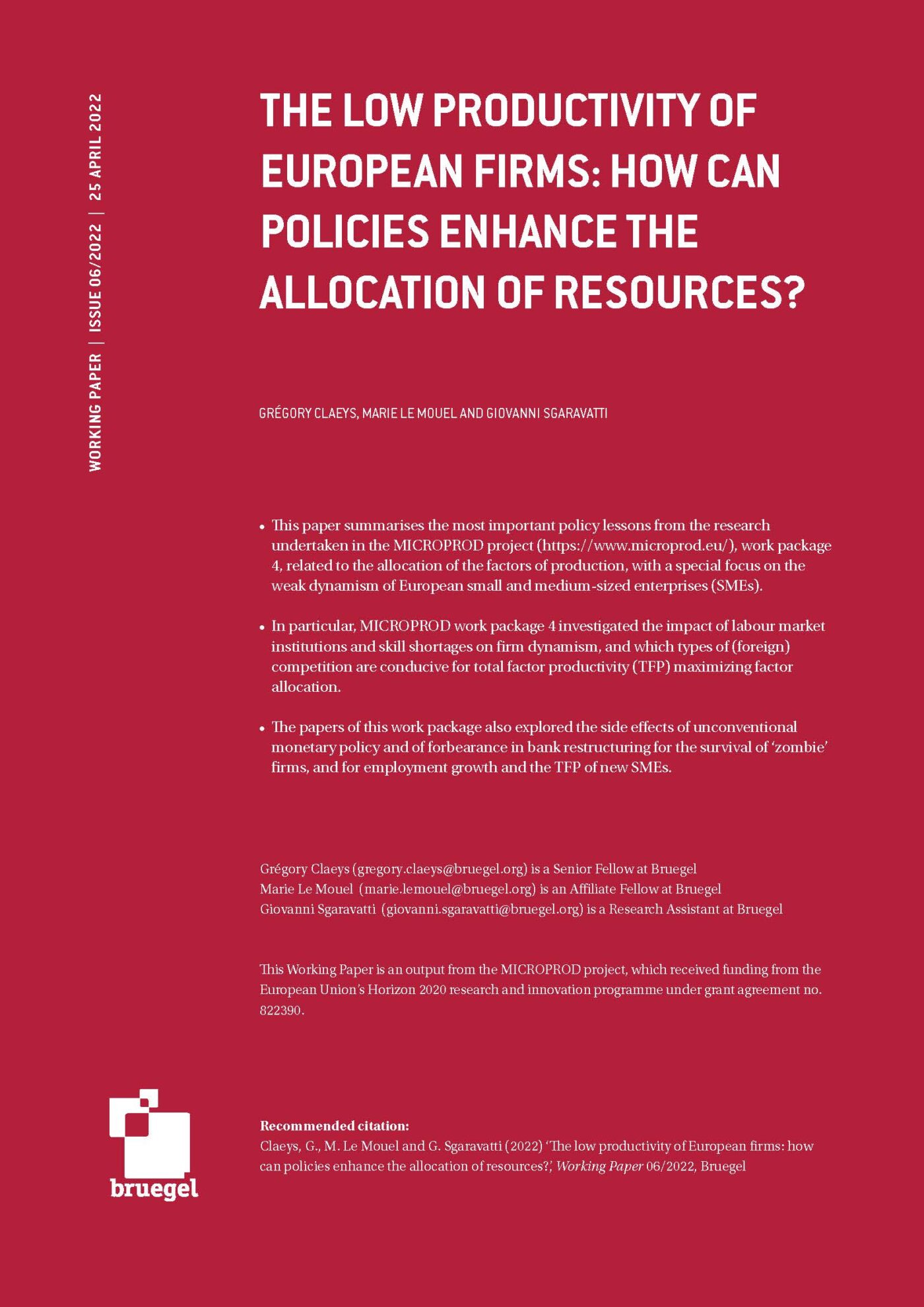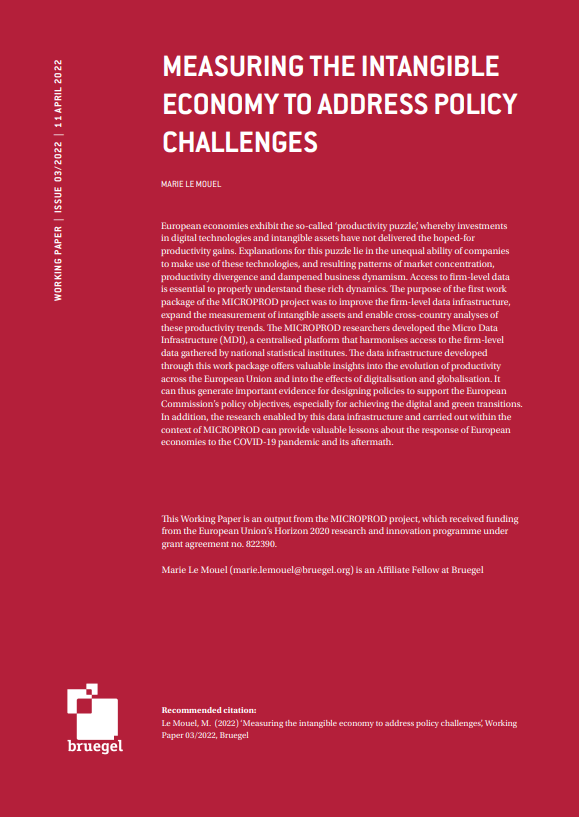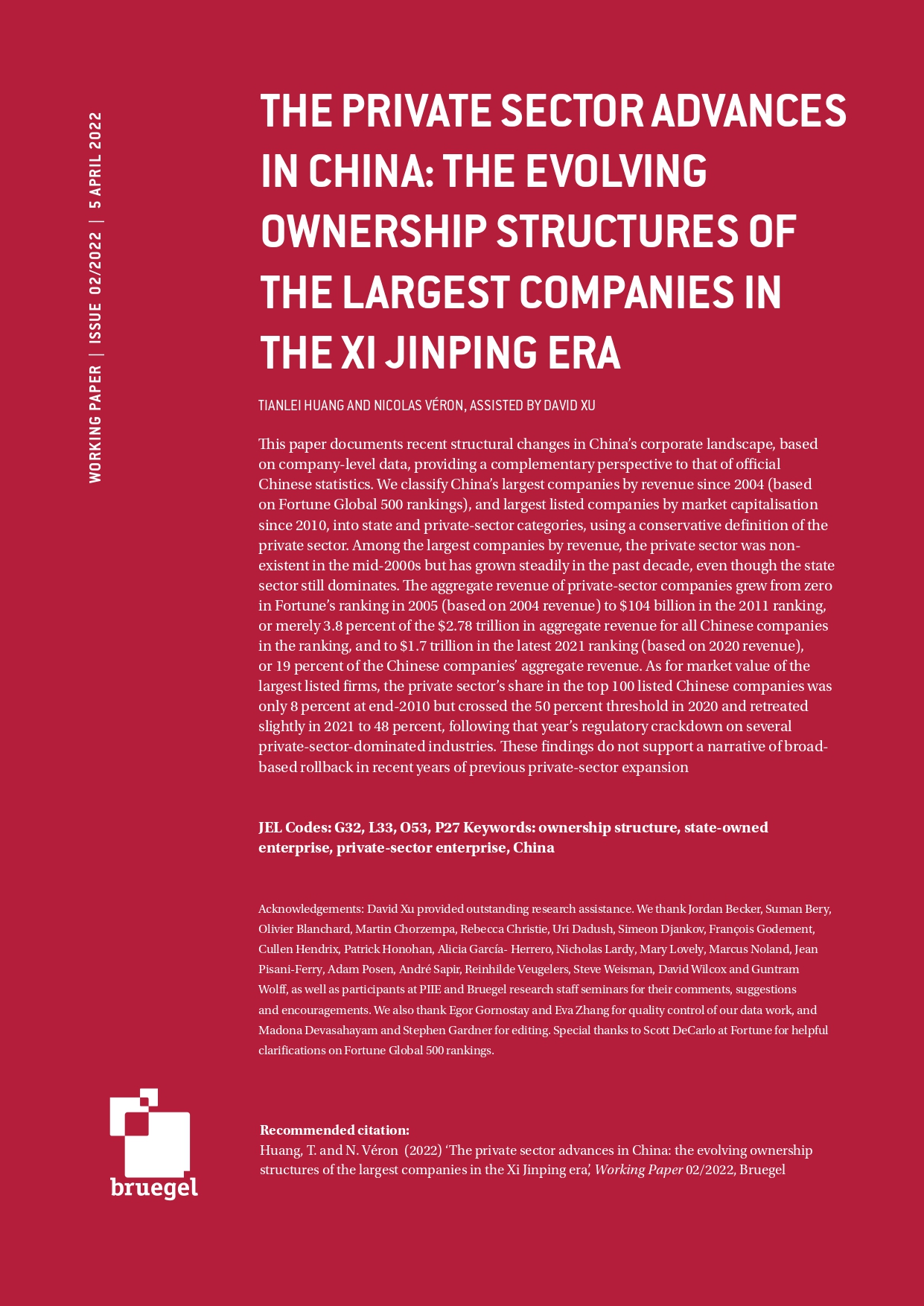Working Paper
Knowledge flows and global value chains
Trade and industrial policy can support productivity growth through global value chains by providing the right legal environment that supports the formation of longterm business relationships.
This Working Paper is an output from the MICROPROD project, which received funding from the European Union’s Horizon 2020 research and innovation programme under grant agreement no. 822390
The organisation of global value chains via supplier links and within business groups shapes global trade and forms a major channel through which knowledge is disseminated between countries. Global value chains are also an important channel through which economic shocks propagate.
At the same time, knowledge seeking and knowledge protection are important determinants for multinational companies when structuring their production processes. Contract enforcement in general, and intellectual property rights protection in particular, are key institutions in this regard.
Hierarchical ownership structures within business groups tend to be organised in the shape of an inverted pyramid, with more complex tasks located closer to the headquarters in ownership terms, facilitating stronger control. Recently, ownership structures have become ‘flatter’, meaning business groups have pulled key operations closer to their headquarters.
New supply-chain relationships with key business partners are often accompanied by process and product innovation, making long-term business relationships an important driver of productivity growth. Knowledge transmission through such links not only benefits participating companies, but also leads to spillover effects.
Import competition from high-income countries leads to investment in R&D and productivity growth in countries that have comparative advantage in capital-intensive goods. This is not the case for import competition from low-income countries, which instead makes companies downsize. Import competition also makes firms focus on their core product.
To improve our understanding of this key aspect of globalisation, comparable microlevel data is needed on firms and firm connections across multiple countries.
Trade and industrial policy can support productivity growth through global value chains by providing the right legal environment that supports the formation of longterm business relationships.
Recommended citation:
Bisztray, M. and N. Poitiers (2022) ‘Knowledge flows and global value chains’, Working Paper 04/2022, Bruegel
